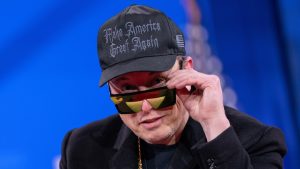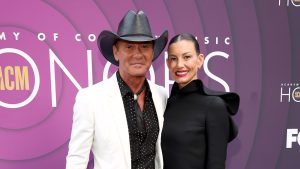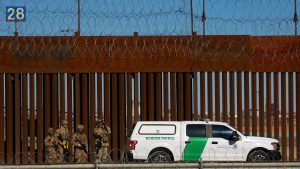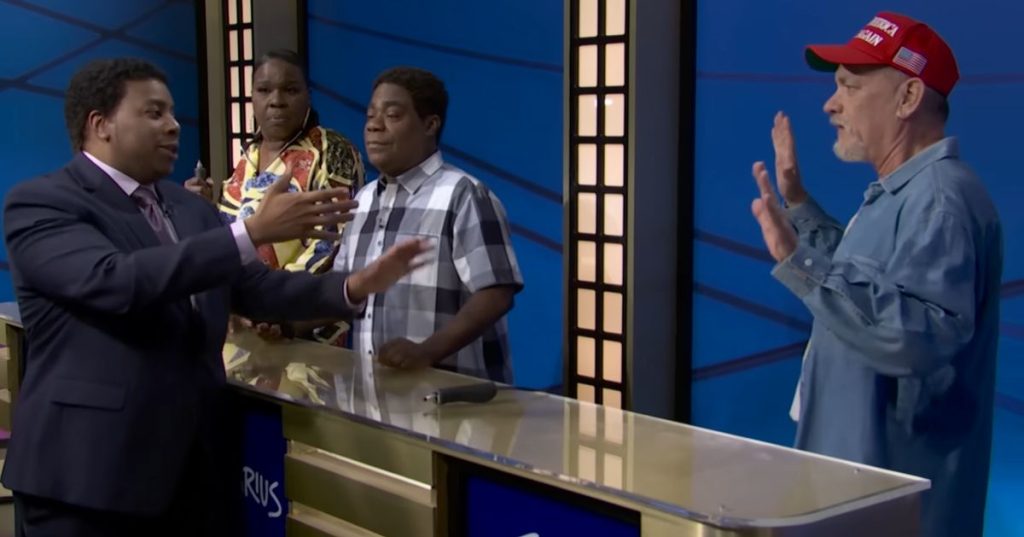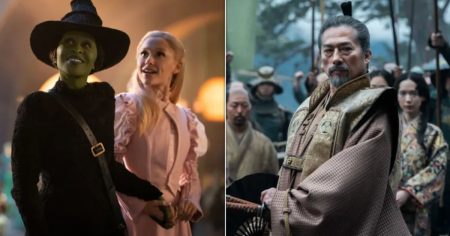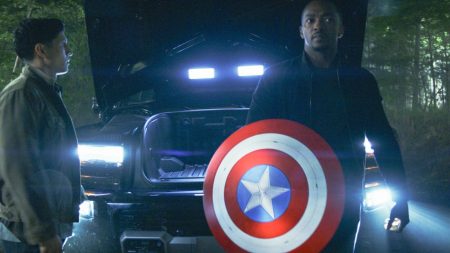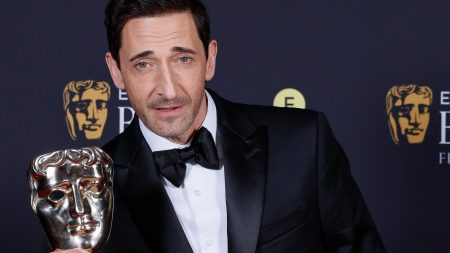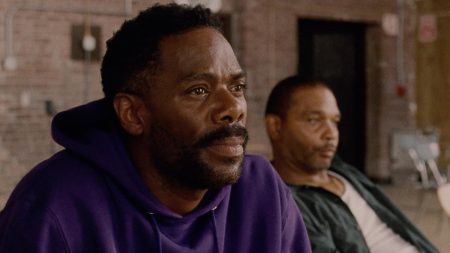MAGA Nation Sees Red Over Tom Hanks’ SNL Sketch
The 50th-anniversary special of Saturday Night Live sparked a firestorm of controversy, and this time, it wasn’t just about politics—it was personal. Tom Hanks, one of America’s most beloved actors, found himself at the center of a cultural tempest after appearing in a sketch that mocks MAGA supporters. In the segment, titled “Black Jeopardy,” Hanks reprised his role as Doug, a right-wing, working-class character who is hilariously out of place in a trivia game tailored for Black Americans. The sketch, which originally aired in 2016, was meant to highlight the absurdity of racial and cultural divides, but this time, it struck a raw nerve with Trump supporters who felt unfairly maligned.
MAGA enthusiasts took to social media to express their outrage, accusing Hanks and SNL of perpetuating racist stereotypes and demeaning Trump voters. “Tom Hanks went on SNL dressed like a slob mocking millions of Trump supporters—portraying them as dumb, racist, rednecks,” one user fumed. Others echoed similar sentiments, claiming the sketch was tone-deaf and out of touch, especially given Donald Trump’s continued popularity and his increasing support among minority voters. For many on the right, the sketch was less about comedy and more about reinforcing harmful caricatures of Trump supporters as racist and ignorant.
But not everyone was offended. Liberals and progressives praised the sketch for its boldness and saw it as a much-needed critique of MAGA culture. “Tom Hanks didn’t capture the essence of MAGA—he nailed it,” one supporter tweeted, arguing that the sketch called out the hypocrisy and racism that many believe is inherent to the movement. The backlash, they argued, was proof that the sketch hit too close to home.
A Sketch With a Purpose: Understanding “Black Jeopardy”
To fully grasp why this sketch caused such a stir, it’s important to understand its context. “Black Jeopardy” is a recurring SNL segment that uses humor to explore the complexities of race and culture in America. The game show format is designed to highlight the differences—and surprising commonalities—between Black and white experiences. In the original 2016 sketch, Hanks’ character, Doug, is a MAGA-loving, southern, white man who surprisingly excels at answering questions about Black culture. His success is a clever subversion of stereotypes, implying that white and Black working-class Americans have more in common than they think.
In the 2025 version, Doug returns, and while the format remains the same, the political climate has changed dramatically. This time, the sketch took a more overtly political tone, with Doug making a statement about the importance of church and then awkwardly recoiling when the Black host, played by Kenan Thompson, approaches him to shake hands. The moment was intended as a callback to the original sketch, where Doug’s fear of Thompson’s gesture was a comedic highlight. However, in 2025, that same joke was interpreted by many as a deliberate slap in the face to Trump supporters, reinforcing the notion that they are racist and uncomfortable around Black people.
The controversy highlights how comedy often walks a thin line between humor and offense. What one person sees as a lighthearted critique, another might view as a personal attack. For SNL, this is familiar territory—after all, the show has a long history of pushing boundaries and sparking conversations. But in today’s hyper-polarized political climate, even the slightest perceived slight can escalate into a full-blown cultural war.
The MAGA Backlash: Why This Sketch Hit a Nerve
So why did this particular sketch resonate so negatively with MAGA supporters? Part of the answer lies in the broader cultural war over representation and identity. Trump supporters have long felt that they are unfairly maligned by Hollywood and the media, and this sketch became a symbol of that perceived hypocrisy. Many argue that while liberals claim to champion diversity and inclusion, they often resort to stereotyping and demeaning conservatives.
For some, the sketch was a perfect example of this double standard. “Hollywood still doesn’t get it,” one critic tweeted. “Portraying Trump supporters as racist caricatures while [Trump] is winning record minority support.” The argument here is that the media is out of touch with the diverse coalition that now Supports Trump, including a growing number of minority voters. By reducing MAGA supporters to racist stereotypes, critics argue, SNL is ignoring the complexity of Trump’s base and alienating potential allies.
But others see the backlash as evidence of MAGA’s own insecurities. If the sketch was so offensive, they ask, why? Is it because it hit too close to the truth? After all, Trump himself has a history of using divisive rhetoric, and his policies on issues like immigration and DEI (Diversity, Equity, and Inclusion) have been sharply criticized as discriminatory. For many on the left, the fear and anger over the sketch are less about the comedy itself and more about the uncomfortable truths it reflects.
The Left’s Defense: Why the Sketch Matters
While MAGA supporters were quick to condemn the sketch, liberals and progressives rallied to its defense, arguing that it was a necessary critique of a movement they believe is rooted in racism and intolerance. “Tom Hanks called a spade a spade, and MAGA is all bent out of shape as if it wasn’t true,” one supporter tweeted. For these viewers, the sketch was less about mocking Trump supporters and more about holding them accountable for their actions and beliefs.
The sketch also tapped into a broader conversation about the role of comedy in politics. Comedy has long been a tool for social commentary, and many argue that it’s at its best when it challenges the status quo and pushes people out of their comfort zones. SNL has a history of tackling tough subjects, from the Vietnam War to the COVID-19 pandemic, and this sketch was no different. By using humor to critique MAGA culture, the show was doing what it does best—spark a conversation.
But not everyone on the left was entirely comfortable with the sketch. Some argued that it oversimplified the complexities of race and class, reducing MAGA supporters to simplistic stereotypes. While the original 2016 sketch was praised for its nuance and unexpected charm, the 2025 version felt more overtly political and less subtle. For some, the humor fell flat, and the message was muddled by its heavy-handedness.
The Bigger Picture: What This Controversy Reveals
At its core, the backlash over the “Black Jeopardy” sketch is less about a single comedy bit and more about the deeply entrenched divisions in American society. The sketch became a lightning rod for broader frustrations over identity, representation, and the role of media in shaping cultural narratives. For MAGA supporters, the sketch was a symbol of Hollywood’s bias and elitism, while for liberals, it was a bold statement about the need to confront racism and intolerance.
The controversy also highlights the growing politicization of everything in America. Even comedy, once a unifying force, has become a battleground in the culture wars. This polarization is reflected in the way people consume media—what one side sees as a harmless joke, the other sees as a declaration of war. The result is a country that is increasingly divided, with little common ground to stand on.
But there’s also a silver lining. If anything, the backlash over the sketch proves that comedy still has the power to spark important conversations. Whether you loved it or hated it, the “Black Jeopardy” sketch forced people to think critically about race, class, and identity—and that’s exactly what comedy is supposed to do.
In the end, the controversy over Tom Hanks and SNL is a microcosm of America’s larger struggles. It’s a reminder that humor is subjective, that politics is personal, and that the line between satire and offense is thinner than ever. As the country continues to grapple with its differences, moments like this will only become more common—and more necessary.
